
Goroka: The Heartbeat of Papua New Guinea's Highlands
Goroka is a vibrant town nestled in the Eastern Highlands of Papua New Guinea. Known for its rich cultural heritage, Goroka offers a unique blend of traditional and modern experiences. The town is famous for the Goroka Show, an annual event that showcases the diverse cultures of the region. Visitors are treated to a spectacular display of traditional dances, songs, and costumes from over 100 tribes. Beyond the festival, Goroka is a gateway to some of the most stunning natural landscapes in Papua New Guinea. The surrounding highlands are covered in lush greenery, dotted with coffee plantations, and crossed by crystal-clear rivers. Adventurous travelers can explore the rugged terrain, visit local villages, and learn about the traditional lifestyles of the indigenous people. Goroka is also home to several educational and cultural institutions. The J.K. McCarthy Museum offers insights into the history and culture of the highlands, while the Raun Raun Theatre provides a platform for local artists to showcase their talents. The town's markets are bustling with activity, offering everything from fresh produce to handmade crafts. Goroka's friendly locals and unique atmosphere make it a must-visit destination for anyone exploring Papua New Guinea.
Local tips in Goroka
- Visit in September to experience the Goroka Show, a vibrant festival celebrating local culture.
- Explore the J.K. McCarthy Museum to learn about the history and traditions of the highlands.
- Don't miss the local markets for fresh produce and unique handmade crafts.
- Take a guided tour to nearby villages to experience traditional highland life.
- Stay hydrated and prepared for changing weather conditions in the highlands.
Goroka: The Heartbeat of Papua New Guinea's Highlands
Goroka is a vibrant town nestled in the Eastern Highlands of Papua New Guinea. Known for its rich cultural heritage, Goroka offers a unique blend of traditional and modern experiences. The town is famous for the Goroka Show, an annual event that showcases the diverse cultures of the region. Visitors are treated to a spectacular display of traditional dances, songs, and costumes from over 100 tribes. Beyond the festival, Goroka is a gateway to some of the most stunning natural landscapes in Papua New Guinea. The surrounding highlands are covered in lush greenery, dotted with coffee plantations, and crossed by crystal-clear rivers. Adventurous travelers can explore the rugged terrain, visit local villages, and learn about the traditional lifestyles of the indigenous people. Goroka is also home to several educational and cultural institutions. The J.K. McCarthy Museum offers insights into the history and culture of the highlands, while the Raun Raun Theatre provides a platform for local artists to showcase their talents. The town's markets are bustling with activity, offering everything from fresh produce to handmade crafts. Goroka's friendly locals and unique atmosphere make it a must-visit destination for anyone exploring Papua New Guinea.
When is the best time to go to Goroka?
Iconic landmarks you can’t miss
ANZ Goroka Corporate Centre
Explore Goroka's cultural richness at the ANZ Goroka Corporate Centre, a modern hub in the heart of Papua New Guinea's Eastern Highlands.
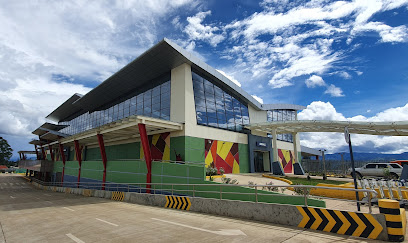
Pacific Gardens Hotel
Experience the tranquility and rich culture of Goroka at Pacific Gardens Hotel, your perfect retreat in the Eastern Highlands of Papua New Guinea.

Goroka steak house
Discover the best steak in Goroka, Papua New Guinea, at Goroka Steak House - where flavor and hospitality meet in a delightful dining experience.
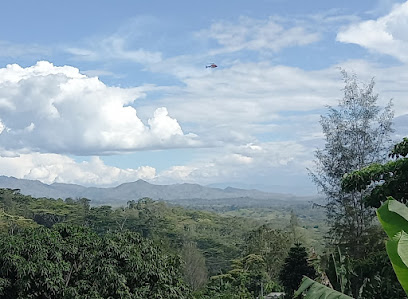
Bird of Paradise Hotel & Apartments
Discover the charm of Goroka at the Bird of Paradise Hotel & Apartments, your gateway to the Eastern Highlands of Papua New Guinea.
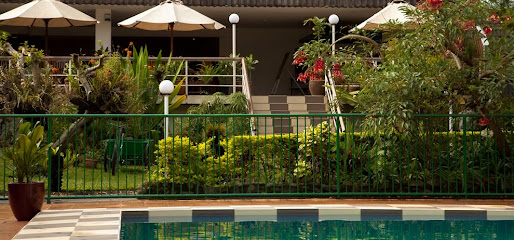
GK Lodge
Discover the unique blend of comfort and culture at GK Lodge in Goroka, Eastern Highlands, Papua New Guinea.
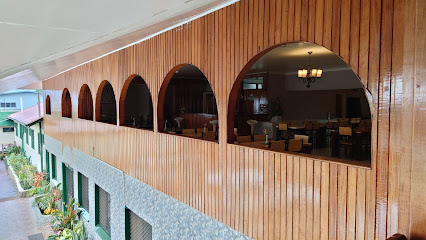
Hotel Phoenix
Experience comfort and local charm at Hotel Phoenix, your ideal base to explore the stunning Eastern Highlands of Papua New Guinea.
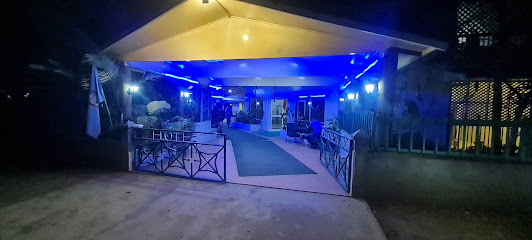
EMMANUEL LODGE
Discover the charm of Goroka at Emmanuel Lodge, your comfortable base for exploring the breathtaking Eastern Highlands of Papua New Guinea.

Papindo Coffee Shop
Experience the local flavors and warm ambiance at Papindo Coffee Shop in Goroka, the perfect spot for coffee lovers and cultural explorers alike.
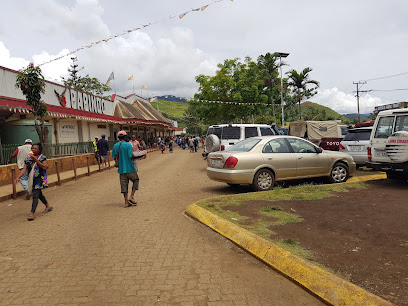
Lutheran Guesthouse
Discover the charm of Goroka at Lutheran Guesthouse, where authentic hospitality meets the stunning beauty of Eastern Highlands.
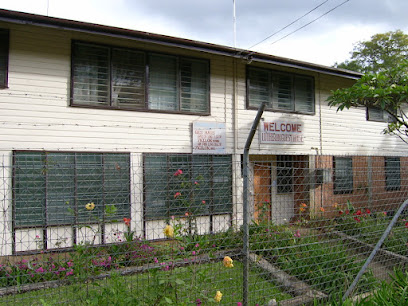
Raun Raun Theater
Discover the heart of Papua New Guinea's culture at Raun Raun Theater, where traditional performances bring local stories to life in Goroka.
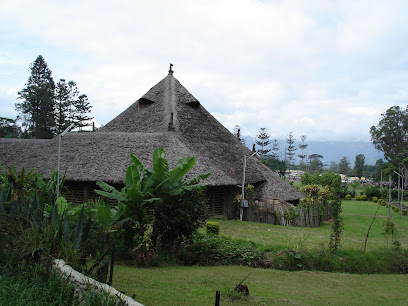
JK McCarthy Museum
Explore the vibrant cultural heritage of Papua New Guinea at the JK McCarthy Museum in Goroka, showcasing artifacts and traditions that tell the story of its people.
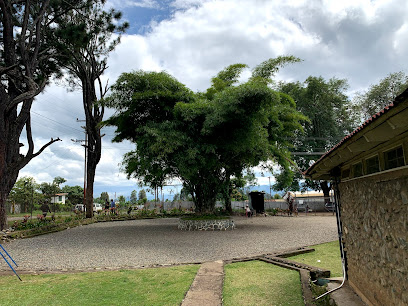
Goroka Lodge
Experience the vibrant nightlife at Goroka Lodge, a premier dance club in Eastern Highlands, where music and culture come alive in every beat.
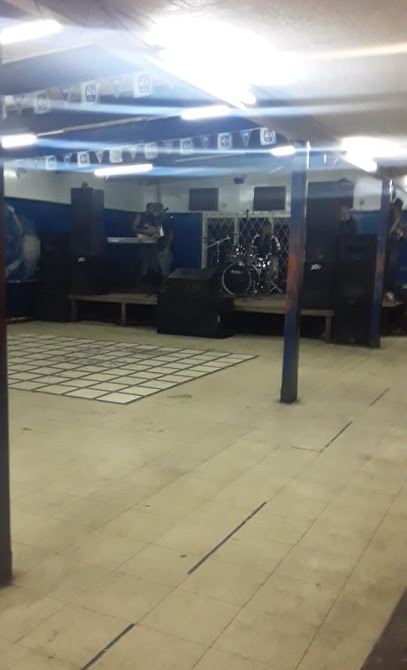
City Pharmacy
Discover essential health services at City Pharmacy in Goroka, your trusted partner for wellness and care during your travels.
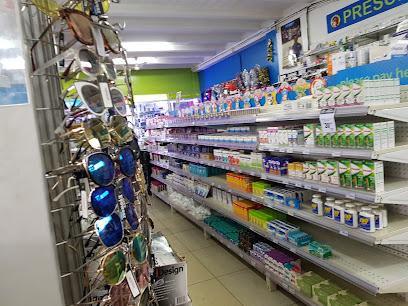
Goroka Airport Kaibar
Savor the flavors of fast food at Goroka Airport Kaibar while enjoying the stunning scenery of Papua New Guinea's Eastern Highlands.

Goroka Picnic Park
Explore Goroka Picnic Park, a serene escape in the heart of Papua New Guinea, blending natural beauty with rich cultural experiences.
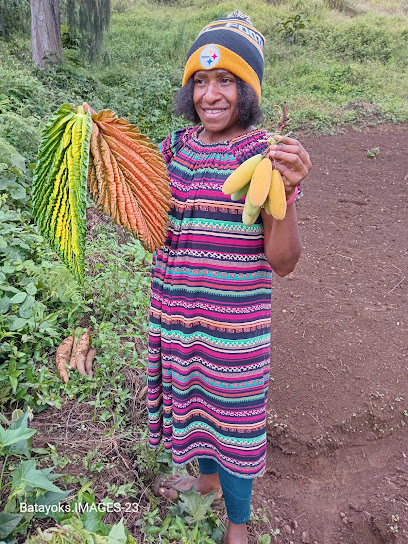
Unmissable attractions to see
Goroka Main Market
Experience the vibrant culture and traditions of Papua New Guinea at Goroka Main Market, a lively hub of local commerce and flavors.
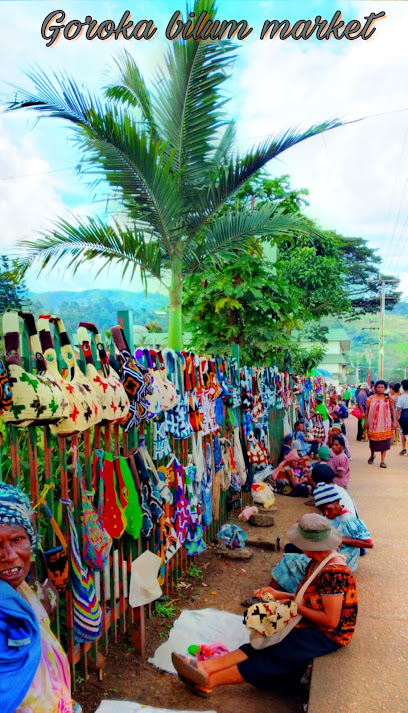
Rotary Park
Discover the natural beauty and cultural richness of Rotary Park, a serene escape in Goroka's vibrant landscape.
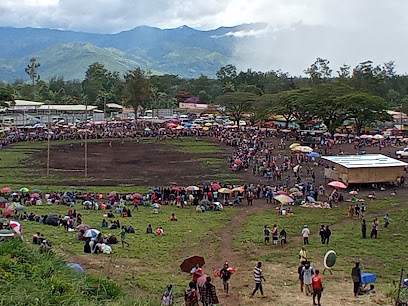
Iku Kolanota Site Scene and Nature Park Ltd
Experience the serene beauty and rich biodiversity of Iku Kolanota Site Scene and Nature Park in Goroka, a must-visit natural wonder in Papua New Guinea.
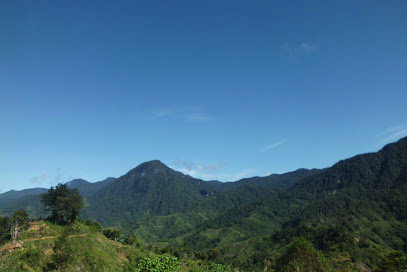
National Day Park
Explore National Day Park in Goroka: a tranquil haven of natural beauty and cultural richness in Papua New Guinea's Eastern Highlands.
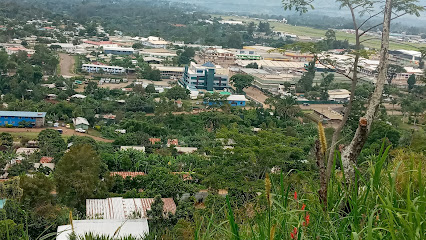
Goroka Picnic Park
Experience the natural beauty and cultural richness of Goroka Picnic Park in Papua New Guinea's Eastern Highlands.
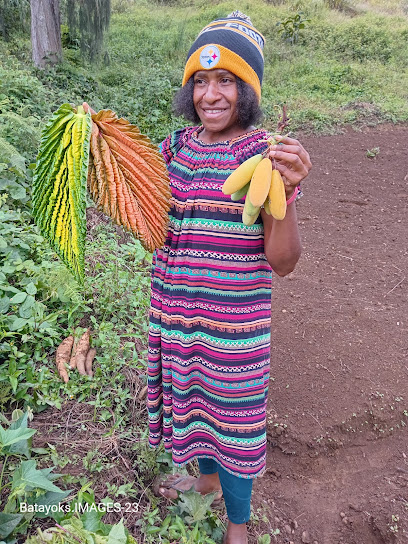
Lapegu Forestry Station
Explore Lapegu Forestry Station, a tranquil national forest in Goroka, Papua New Guinea, rich in biodiversity and stunning landscapes.
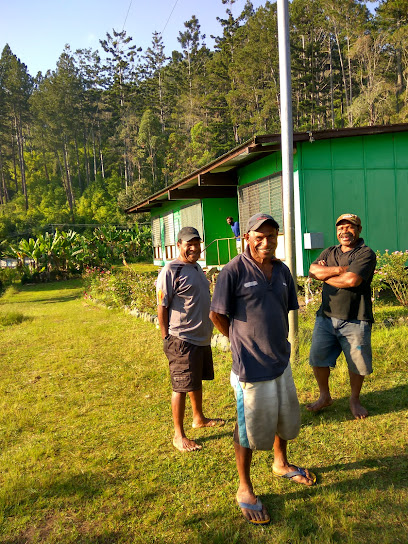
Kotuni Trout Farm & Eco Tourism Cooperative
Explore the tranquil beauty of Kotuni Trout Farm & Eco Tourism Cooperative, where nature and sustainable tourism come together in Papua New Guinea's Eastern Highlands.

Peace Park
Explore the tranquil beauty of Peace Park in Goroka, a cultural gem nestled in the Eastern Highlands of Papua New Guinea.
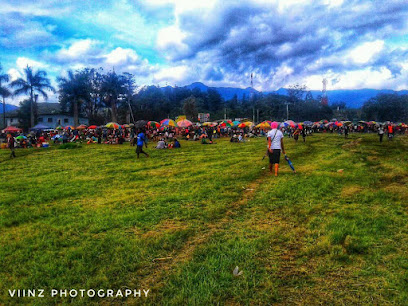
Geremiaka Trek & Tour
Explore the breathtaking landscapes and rich culture of Papua New Guinea with Geremiaka Trek & Tour in the stunning Eastern Highlands.
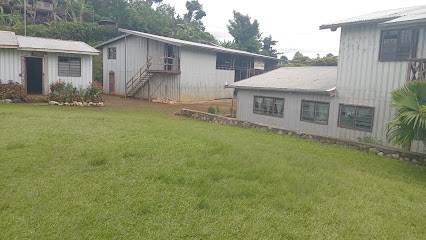
Park Ridge Estates & Botanic Gardens
Explore the serene beauty of Park Ridge Estates & Botanic Gardens in Goroka, a perfect escape into nature’s tranquility.

Natauka Zamu Nature Park
Explore the tranquility of Natauka Zamu Nature Park, a picturesque escape in Papua New Guinea’s Eastern Highlands, perfect for nature lovers and adventurers.
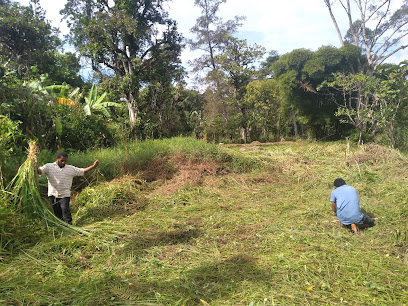
Galegapauko Guest House
Discover the hidden beauty of Eastern Highlands at Galegapauko Guest House, where culture and nature harmoniously blend for an unforgettable experience.

Mt. Kiss
Explore the serene landscapes and rich biodiversity of Mt. Kiss in Goroka, a perfect escape into nature's embrace in Papua New Guinea's Eastern Highlands.

Safa FarmVille
Explore the enchanting Safa FarmVille in Papua New Guinea's Eastern Highlands, where nature meets culture in a vibrant farming experience.

Asaro Horosa Mudmen culture
Explore the captivating Asaro Horosa Mudmen culture in Goroka, where tradition, art, and history come alive in a breathtaking highland setting.
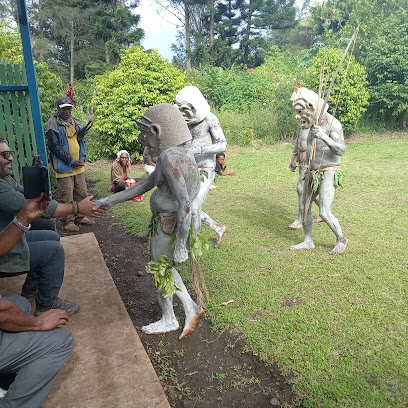
Essential places to dine
Pacific Gardens Hotel
Experience serene comfort and authentic local culture at Pacific Gardens Hotel in Goroka's breathtaking landscapes.

Goroka steak house
Discover delectable steaks and local flavors at Goroka Steak House in Papua New Guinea's stunning Eastern Highlands.
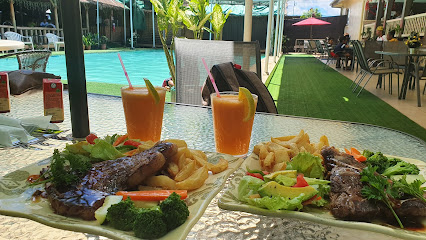
Bird of Paradise Hotel & Apartments
Discover comfort and culture at Bird of Paradise Hotel & Apartments in Goroka – your perfect retreat in Papua New Guinea's Eastern Highlands.
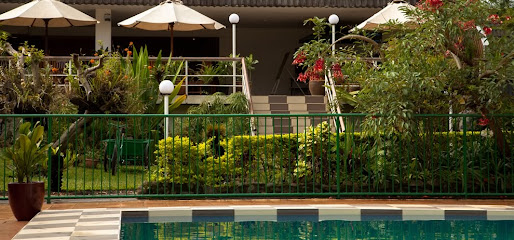
GK Lodge
Experience comfort amidst nature at GK Lodge in Goroka, where local culture meets stunning landscapes for an unforgettable stay.
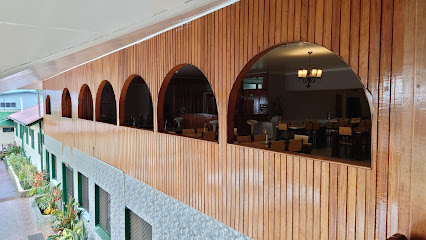
EMMANUEL LODGE
Experience authentic Papua New Guinea hospitality at Emmanuel Lodge in Goroka - your gateway to stunning landscapes and rich cultural heritage.

Gold Bell Cafe
Experience authentic Papua New Guinean cuisine at Gold Bell Cafe in Goroka's vibrant heart - a culinary journey awaits you.
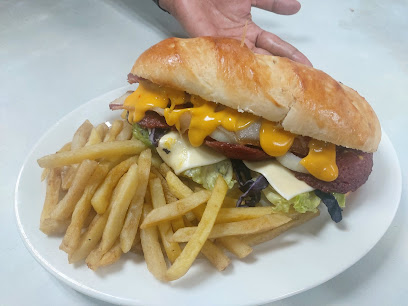
Emmunal Lodge
Discover comfort and culture at Emmunal Lodge in Goroka's stunning Eastern Highlands – where hospitality meets breathtaking scenery.
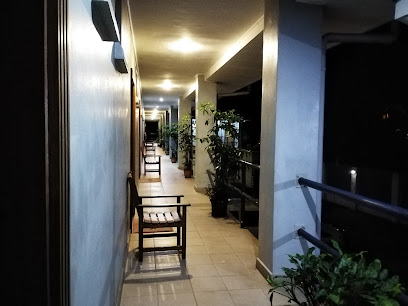
Reo’s Bread and Cafe
Experience authentic Papua New Guinea flavors at Reo’s Bread and Cafe in Goroka - where every bite tells a story.
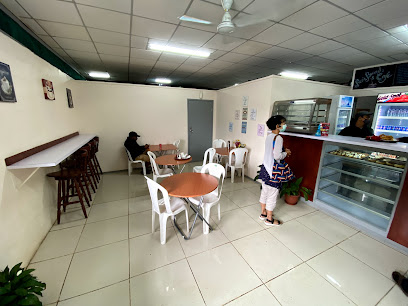
UNIGOR RESTAURANT
Experience the rich flavors of Papua New Guinea at UNIGOR Restaurant in Goroka – where local meets global cuisine.
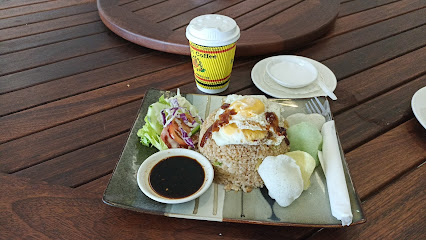
REDCOCO SERVICE APARTMENTS
Discover comfort and culture at REDCOCO Service Apartments in Goroka – your gateway to exploring Papua New Guinea's breathtaking Eastern Highlands.
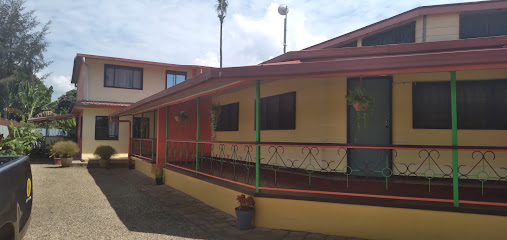
City Pharmacy
Explore Goroka confidently with City Pharmacy - your trusted source for health essentials and local medical expertise.
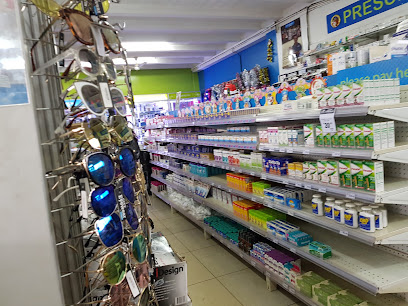
Mandarin Restaurant
Savor the authentic taste of local and Asian cuisine at Mandarin Restaurant in Goroka - a culinary journey awaits you!
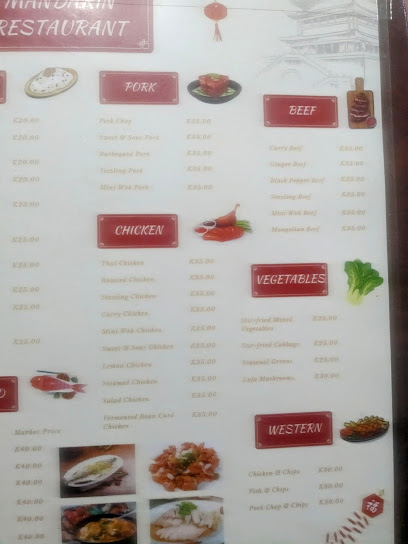
Goroka Plaza Food Court
Experience the vibrant flavors of Papua New Guinea at Goroka Plaza Food Court - where local cuisine meets lively atmosphere.
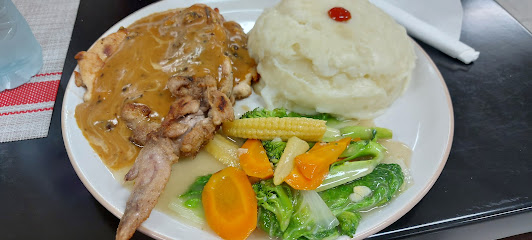
CAFE MOHO
Experience authentic Papua New Guinean cuisine at Cafe Moho in Goroka - where flavors meet culture in a cozy setting.
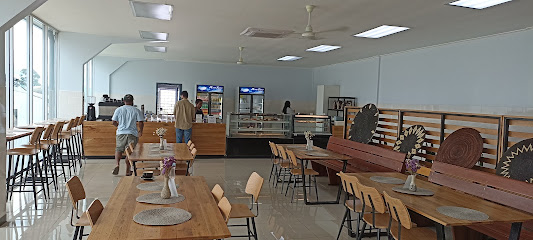
Jungle Taste Lopi
Discover the authentic tastes of Papua New Guinea at Jungle Taste Lopi in Goroka – where every dish tells a story.

Markets, malls and hidden boutiques
Goroka Main Market
Discover the vibrant culture and flavors of Goroka at the Main Market, a must-visit destination in Papua New Guinea's Eastern Highlands.
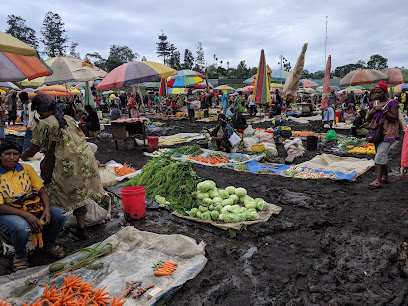
Brian Bell Home Center
Experience the best of Goroka shopping at Brian Bell Home Center, where local culture meets quality home goods.
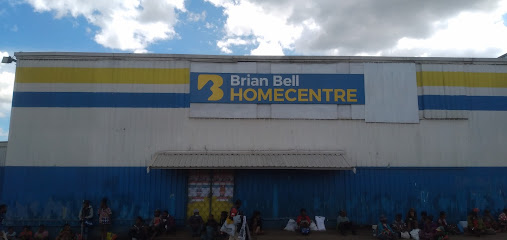
Goroka Papindo Top Town
Discover local flavors and unique products at Goroka Papindo Top Town, your gateway to the culinary delights of the Eastern Highlands.
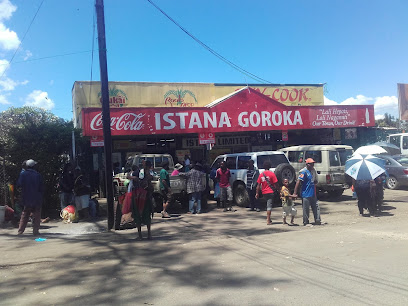
Papindo Supercenter, Market
Discover local flavors and essentials at Papindo Supercenter, a vibrant grocery store experience in Goroka, Eastern Highlands Province.
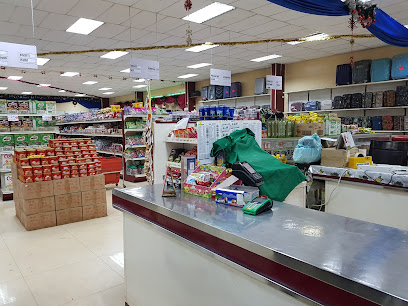
Bintangor supermarket
Explore Bintangor Supermarket in Goroka for a taste of local and international flavors, offering a rich selection of culinary delights in Eastern Highlands.
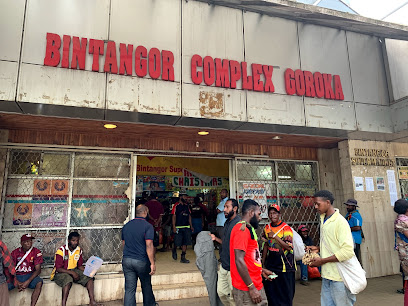
Lopi Market
Explore the vibrant Lopi Market in Goroka, where local culture, delicious cuisine, and unique handicrafts come alive.
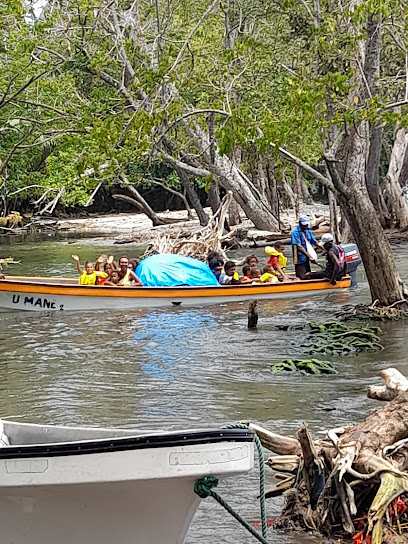
Sengda SuperMarket
Explore Sengda SuperMarket in Goroka for a vibrant shopping experience filled with local goods, delicious foods, and cultural treasures.
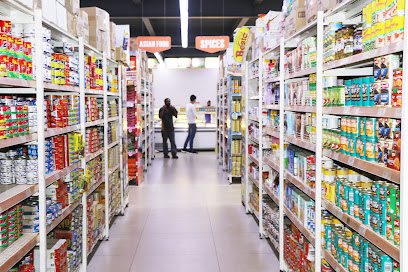
BLKNYLW Cafe
Discover the rich flavors of Goroka at BLKNYLW Cafe, where coffee lovers unite in a cozy and inviting atmosphere.
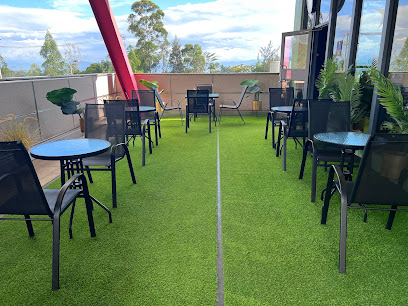
Istana Shopping Centre
Discover the bustling Istana Shopping Centre in Goroka, where local life comes alive through vibrant markets and unique regional products.

KINGWEE Supermarket
Experience the vibrant local culture and flavors at KINGWEE Supermarket in Goroka, your gateway to Papua New Guinea's culinary delights.
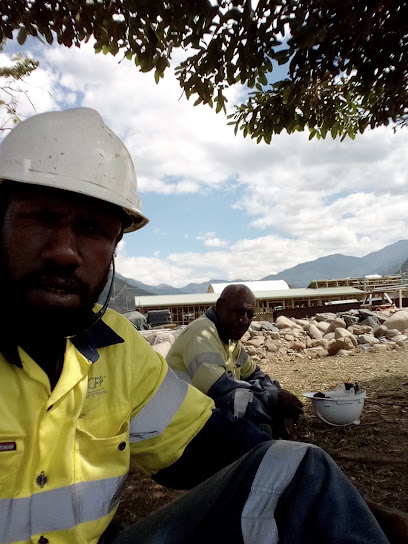
6Gee's Second Chance Shop
Explore unique second-hand treasures and local artifacts at 6Gee's Second Chance Shop in Goroka, Eastern Highlands Province.
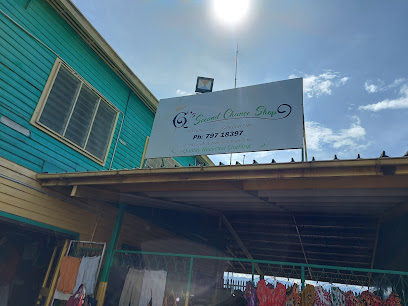
Fone Haus Brian Belll Goroka
Explore Fone Haus in Goroka for top-quality cell phones and accessories, perfect for staying connected during your Eastern Highlands adventure.

Protiva Mini Mart
Experience the vibrant culture of Papua New Guinea at Protiva Mini Mart - a charming supermarket in Goroka offering local flavors and essentials.
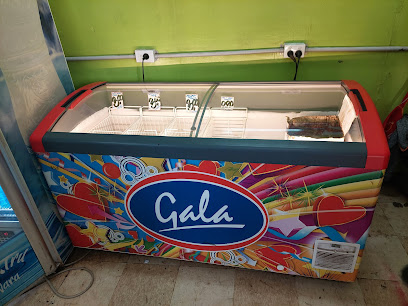
Hipa Trading
Explore Goroka's flavors and essentials at Hipa Trading, your local convenience store for all travel needs in Eastern Highlands Province.
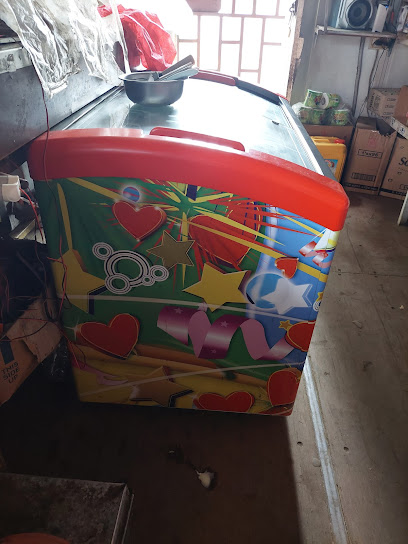
Tugujawin Trading
Experience the vibrant culinary culture of Goroka at Tugujawin Trading, where local ingredients and flavors come together in a delightful grocery store.

Essential bars & hidden hideouts
Goroka steak house
Discover Goroka Steak House, a top dining spot in Papua New Guinea, where premium steaks meet warm hospitality in a vibrant setting.
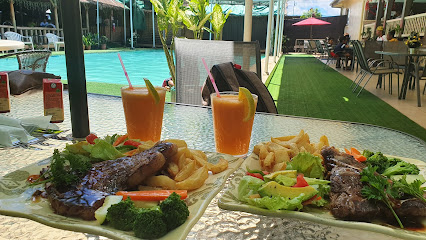
Bird of Paradise Hotel & Apartments
Discover the charm of Goroka at the Bird of Paradise Hotel & Apartments, your perfect retreat in Eastern Highlands, Papua New Guinea.
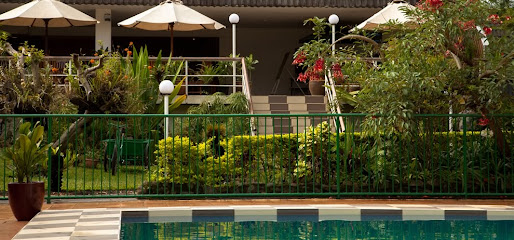
Gold Bell Cafe
Discover the vibrant culinary scene at Gold Bell Cafe, where local flavors and warm hospitality meet in Goroka's scenic Eastern Highlands.
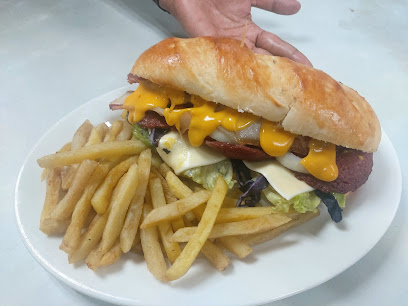
UNIGOR RESTAURANT
Discover the rich flavors of Papua New Guinea at Unigor Restaurant, where local ingredients meet culinary creativity in a cozy setting.
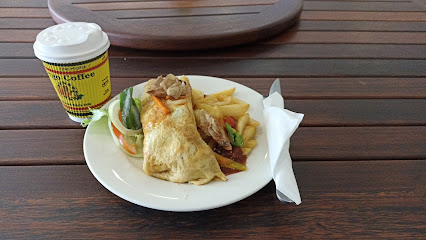
Mandarin Restaurant
Experience the rich flavors of Papua New Guinea at Mandarin Restaurant in Goroka, where traditional meets contemporary in a delightful culinary journey.
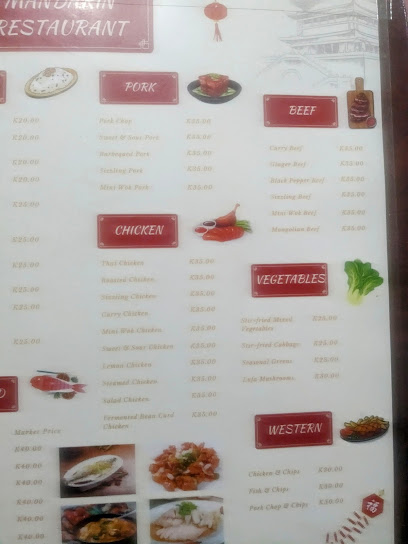
Goroka Yot Club
Experience the vibrant nightlife at Goroka Yot Club, where music, drinks, and unforgettable moments come together in Eastern Highlands Province.
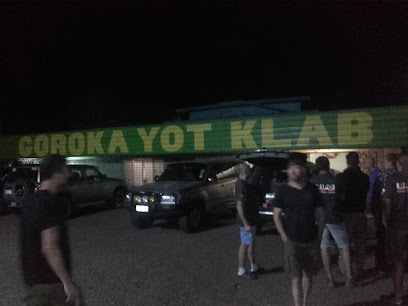
Goroka Plaza Food Court
Discover the flavors of Papua New Guinea at Goroka Plaza Food Court, where local and international cuisines come together in a vibrant dining experience.
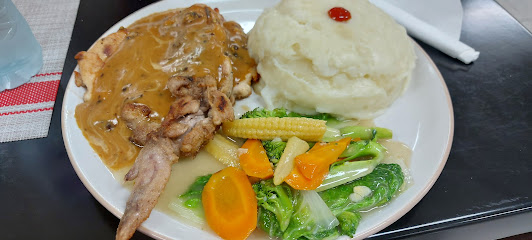
Kafe Kona
Discover the refreshing flavors of Goroka at Kafe Kona, where fresh juices and local culture combine for an unforgettable experience.
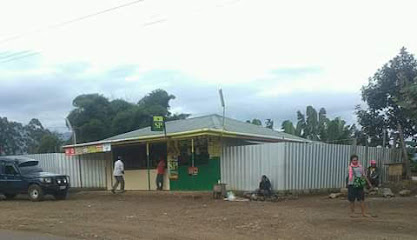
CAFE MOHO
Discover the taste of Goroka at Cafe Moho, where local flavors meet international cuisine in a cozy dining atmosphere.
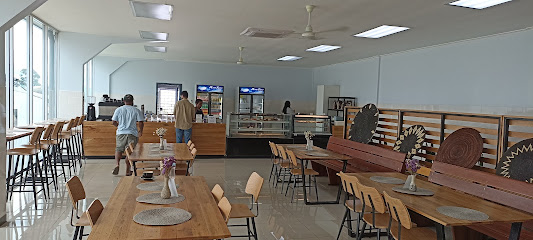
Goroka Airport Kaibar
Experience the vibrant flavors of Papua New Guinea at Goroka Airport Kaibar, the fast food gem of Eastern Highlands.

Yida Restaurant
Discover the vibrant taste of Asia at Yida Restaurant in Goroka, where every dish tells a story of culinary tradition and flavor.
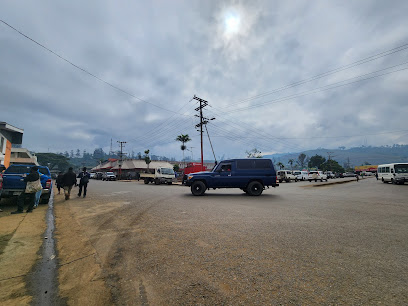
Jungle Taste Faniufa
Experience the authentic flavors of Papua New Guinea at Jungle Taste Faniufa, a culinary oasis in Goroka's lush highlands.

Vito Ato
Experience the vibrant nightlife and local culture at Vito Ato, Goroka's premier bar in the Eastern Highlands.

Deck Bistro
Experience the best of local and international cuisine at Deck Bistro in Goroka, where flavors and stunning views come together.

Local Phrases
-
- HelloMoni
[moh-nee] - GoodbyeGutpela gut
[goot-peh-lah goot] - YesYes
[yes] - NoNogat
[no-gut] - Please/You're welcomePlis
[plees] - Thank youTenkyu
[tenk-yoo] - Excuse me/SorrySori
[soh-ree] - How are you?Yu stap gut?
[yoo stap goot] - Fine. And you?Mi stap gut. Na yu?
[mee stap goot. nah yoo] - Do you speak English?Yu save toktok long Tok Pisin?
[yoo sah-veh tohk-tohk long tohk pee-seen] - I don't understandMi no save
[mee no sah-veh]
- HelloMoni
-
- I'd like to see the menu, pleaseMi laik lukim menu, plis
[mee lie-kim loo-keem meh-noo, plees] - I don't eat meatMi no kaik kapul
[mee no kai-kahp-ool] - Cheers!Tingim yu!
[ting-eem yoo] - I would like to pay, pleaseMi laik pai, plis
[mee lie-k pie, plees]
- I'd like to see the menu, pleaseMi laik lukim menu, plis
-
- Help!Help!
[help] - Go away!Go liklik!
[go lee-kleek] - Call the Police!Kolim Polis!
[koh-leem poh-lees] - Call a doctor!Kolim dokta!
[koh-leem dohk-tah] - I'm lostMi lusim
[mee loo-seem] - I'm illMi sik
[mee seek]
- Help!Help!
-
- I'd like to buy...Mi laik baim...
[mee lie-k bah-eem] - I'm just lookingMi tasol lukim
[mee tah-sohl loo-keem] - How much is it?Em i klostu hau?
[em ee klohs-too how] - That's too expensiveEm i moa 'spensiv
[em ee moh-ah es-pen-seev] - Can you lower the price?Yu ken paitim prais?
[yoo ken pie-teem price]
- I'd like to buy...Mi laik baim...
-
- What time is it?Hausait taim?
[how-sah-eet tah-eem] - It's one o'clockEm i wan o'klak
[em ee wahn oh-klock] - Half past (10)Haf pasten (10)
[hahf pahs-ten] - MorningMoning
[moh-neeng] - AfternoonApinun
[ah-pee-noon] - EveningEvening
[ee-veh-neeng] - YesterdayYesde
[yes-deh] - TodayTede
[teh-deh] - TomorrowTumoro
[too-moh-roh] - 1Wan
[wahn] - 2Tu
[too] - 3Tri
[tree] - 4Fo
[foh] - 5Faiv
[fahyv] - 6Sikis
[see-kees] - 7Seven
[seh-ven] - 8Eit
[eyt] - 9Nain
[nayn] - 10Ten
[ten]
- What time is it?Hausait taim?
-
- Where's a/the...?Em istap...
[em ees-tahp] - What's the address?Wanem adras?
[wahn-em ad-rahss] - Can you show me (on the map)?Yu ken soim mi (long map)?
[yoo ken soym mee long map] - When's the next (bus)?Wanem taim namba?
[wahn-em tah-eem nahm-bah] - A ticket (to ....)Wan tiket (long ....)
[wahn tee-keht long]
- Where's a/the...?Em istap...
History of Goroka
-
Before European contact, the Goroka region was home to several indigenous tribes. These tribes lived in a traditional society, practicing agriculture, hunting, and gathering. They developed unique cultures, languages, and customs that are still evident today.
-
The first recorded European contact with the Goroka region occurred in the 1930s when Australian gold prospectors ventured into the highlands. This initial contact led to the gradual opening of the area to the outside world.
-
During World War II, the Goroka region played a significant role as a strategic location for the Allies. The highlands provided a base for the construction of airstrips and support facilities, which were crucial for military operations in the Pacific Theater.
-
After the war, Goroka began to develop rapidly. The establishment of the Highlands Highway connected the town to the coastal ports, facilitating trade and growth. Goroka became a hub for education, health services, and administrative functions in the Eastern Highlands Province.
-
The Goroka Show, first held in 1957, is one of Papua New Guinea's most famous cultural events. This spectacular festival showcases the traditional dances, music, and costumes of various tribes from the highlands and beyond. It has become a major tourist attraction, drawing visitors from around the world.
-
Papua New Guinea gained independence from Australia in 1975. Since then, Goroka has continued to evolve, balancing traditional practices with modern influences. The town remains an important center for cultural exchange and economic activity in the region.
Goroka Essentials
-
Goroka is accessible via the Goroka Airport (GKA), which receives flights from Port Moresby, the capital of Papua New Guinea. Air Niugini and PNG Air are the primary airlines that operate these flights. The flight from Port Moresby to Goroka typically takes around one hour. Alternatively, you can take a long-distance bus or hire a private car for a scenic but lengthy drive from Port Moresby, which can take approximately 10-12 hours due to road conditions.
-
Within Goroka, transportation options include local taxis and minibuses known as PMVs (Public Motor Vehicles). Taxis can be hired for a day or for specific trips, and it's advisable to agree on a fare beforehand. PMVs are the most common form of public transport and are quite affordable. For exploring the nearby areas, renting a car might be a convenient option. However, be aware that road conditions can vary, and driving can be challenging for those unfamiliar with the region.
-
The official currency in Papua New Guinea is the Papua New Guinean Kina (PGK). While credit cards are accepted in some hotels, restaurants, and larger shops in Goroka, it's advisable to carry cash for smaller establishments and markets. ATMs are available in Goroka, but it is wise to withdraw sufficient cash in Port Moresby if you are planning to explore rural areas where ATMs might be scarce.
-
Goroka is generally considered safe for tourists, but it's important to exercise standard travel precautions. Avoid walking alone at night, especially in poorly lit areas. The Kakaruk Market area can be busy and crowded, making it a hotspot for pickpocketing, so keep an eye on your belongings. Stay aware of your surroundings and avoid displaying expensive items. It's always best to travel in groups and use reputable transportation services.
-
In case of an emergency, dial 111 for police, fire, or medical assistance. Goroka Base Hospital is the main medical facility in the area. It's recommended to have travel insurance that covers medical emergencies. For minor health issues, there are pharmacies available in town where you can purchase over-the-counter medications. Always keep a list of emergency contacts and the address of your accommodation handy.
-
Fashion: Do dress modestly to respect local customs, particularly in rural areas. Avoid wearing revealing clothing. Religion: Do be respectful of local religious practices and traditions. When visiting churches or sacred sites, dress conservatively and behave respectfully. Public Transport: Do be polite and respectful when using PMVs. Don’t argue with the drivers or other passengers. Greetings: Do greet people with a smile and a handshake. A simple 'hello' or 'good morning' in the local language, Tok Pisin, is appreciated. Eating & Drinking: Do try local foods and accept hospitality graciously. Don't refuse food or drink offers, as it can be seen as impolite.
-
To experience Goroka like a local, visit the Goroka Market where you can buy fresh produce and traditional handicrafts. Engage with the locals, as they are often friendly and willing to share stories about their culture and traditions. Don’t miss the annual Goroka Show if you’re visiting in September, where you can witness traditional dances and customs from tribes across the region. For a unique experience, take a trip to the J.K. McCarthy Museum to learn more about the history and culture of the Eastern Highlands.
Trending Landmark in Goroka
Nearby Cities to Goroka
-
Things To Do in Madang
-
Things To Do in Mount Hagen
-
Things To Do in Buka
-
Things To Do in Lae
-
Things To Do in Wewak
-
Things To Do in Port Moresby
-
Things To Do in Kimbe
-
Things To Do in Vanimo
-
Things To Do in Kavieng
-
Things To Do in Alotau
-
Things To Do in Rabaul
-
Things To Do in Kokopo
-
Things To Do in Arawa
-
Things To Do in Port Douglas
-
Things To Do in Cairns





